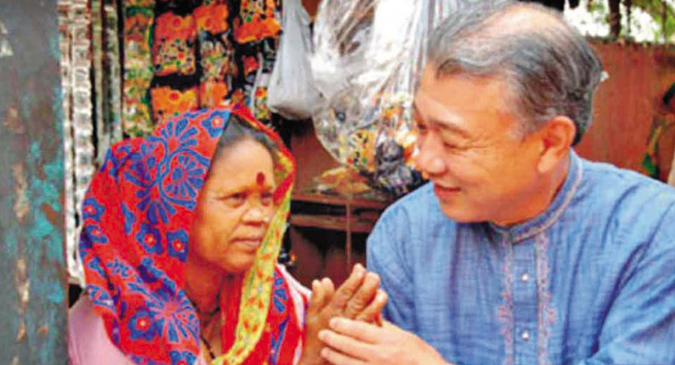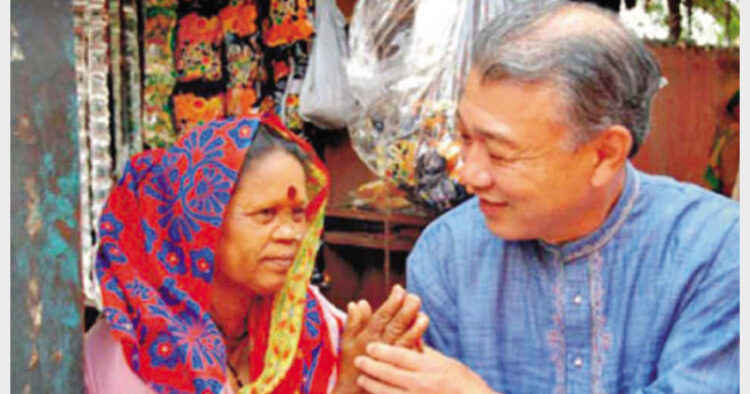Sasakawa-India Leprosy Foundation fosters economic independence and social rehabilitation of leprosy-affected people in India
Yohei Sasakawa, the founder of Nippon Foundation, is conferred with the Gandhi peace prize for the year 2018. As the chairman of this philanthropic foundation with the mission of share the pain, share the hope, share the future, Sasakawa has for over 30 years been dedicated to a global campaign to eliminate leprosy, the oldest disease that is still considered as a curse for humankind. He has been actively working in close co-operation with the international organisations, governments, and NGOs for the cause. His decision to fund between 1995 and 1999 free multi-drug therapy (MDT) for every leprosy-affected person in the world was a landmark one and as per the estimate around 16 million people have been cured of the disease since MDT first became available in the 1980s.

Sasakawa has described the elimination of leprosy as his life’s work and spends one-third of every year travelling around the world as WHO Goodwill Ambassador for Leprosy Elimination, a position he has held since 2001. In recognition of his work, Sasakawa was in 2007 appointed the Japanese Government Goodwill Ambassador for the Human Rights of Persons Affected by Leprosy. In response to his subsequent appeals, the Japanese government submitted a draft resolution for “Elimination of Discrimination against Persons Affected by Leprosy and their Family Members” to the newly formed UN Human Rights Council. The resolution was co-sponsored by 59 countries and unanimously adopted by the Council’s member states on June 18, 2008. The Sasakawa draft that articulated the principles against discrimination is still considered as the important document for ensuring dignity and rights of the leprosy-affected people.
Yohei Sasakawa
India had produced the largest number of leprosy patients, and Yohei Sasakawa’s visits to India over a period of three consecutive years were crucial in realising the goal of elimination in 2005
India had produced the largest number of patients, and Sasakawa’s 19 visits to India over a period of three consecutive years were crucial in realising the goal of elimination in 2005. That same year, Sasakawa initiated the establishment of the National Forum of People Affected by Leprosy in India, a nationwide network of leprosy colonies in the country home to the world’s largest population of people affected by leprosy. Subsequently, in 2006, he established the Sasakawa-India Leprosy Foundation, which fosters the economic independence and social rehabilitation of leprosy-affected people in India.














Comments